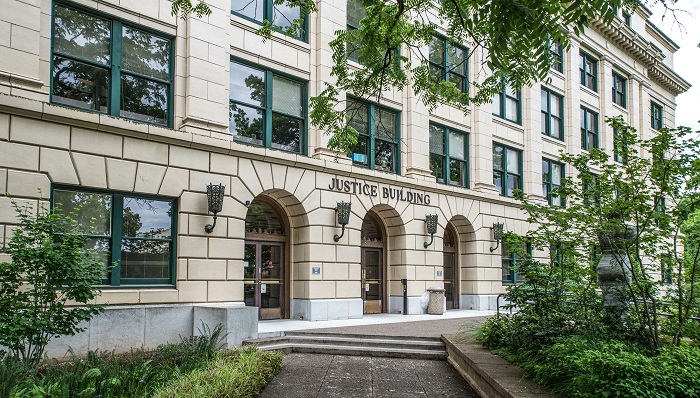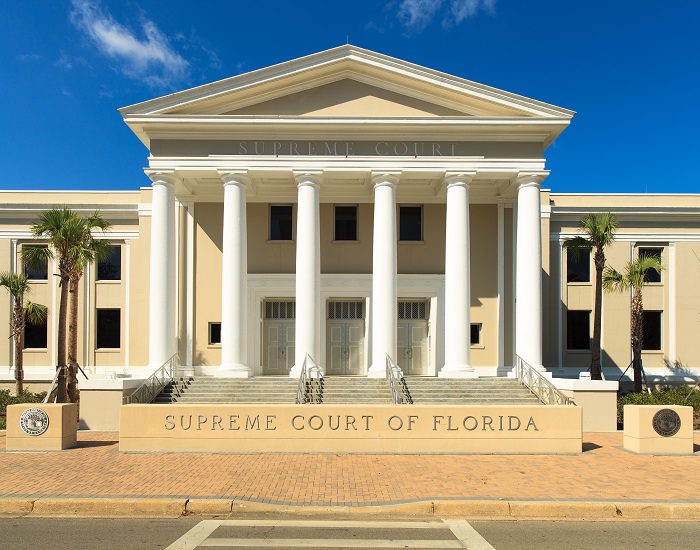The Maryland Court of Appeals, the highest court in the State, recently held that the plaintiffs owners and tenants of residential properties set forth a cause of action under Md. Code Real Prop. 7-113 against a mortgage servicer and real estate broker for supposedly posting eviction notices without first ascertaining the occupancy status, even though the notices did not cause the occupants to vacate the properties.
Posts tagged as “Mortgage Law”
The U.S. Court of Appeals for the Eighth Circuit recently affirmed the dismissal of a homeowner-borrower’s action for wrongful foreclosure, violation of the Missouri Merchandising Practices Act (MMPA), and negligent misrepresentation against his mortgagee.
The California Court of Appeal, Second Appellate District, recently affirmed a trial court’s grant of summary judgment in favor of a mortgage servicer in a suit filed under the California Homeowner Bill of Rights seeking to enjoin foreclosure proceedings.
The U.S. Court of Appeals for the Fourth Circuit recently affirmed in part and vacated and remanded in part a trial court’s grant of summary judgment in favor of plaintiffs who brought a class action suit alleging that the pressure tactics used by the defendants on home appraisers to raise the appraisal values on the plaintiffs’ homes constituted conspiracy, breach of contract and unconscionable inducement under the West Virginia Consumer Credit and Protection Act.
The Supreme Court of Ohio recently affirmed the dismissal of a borrower’s complaint for a writ of mandamus and a writ of prohibition filed against the successor to trial court judges who presided over a foreclosure action in which judgment was entered against the borrower.
The U.S. Court of Appeals for the Eleventh Circuit recently affirmed the dismissal of a borrower’s petition seeking relief under the federal All Writs Act for purported violations of the automatic bankruptcy stay in continued foreclosure proceedings and purported violations of the borrower’s rights to remove the state court proceedings to the bankruptcy court.
The U.S. Eighth Circuit Court of Appeals recently upheld a trial court's summary judgment ruling against a borrower on a claim alleging a violation of the Minnesota Mortgage Originator and Servicer Licensing Act (MOSLA) due to his failure to prevail on his claims asserted under the federal Real Estate Settlement Procedures Act (RESPA) upon which the borrower's MOSLA claims were predicated.
The Oregon Supreme Court recently held that a lien for delinquent condominium assessments has priority over a first mortgage or deed of trust, where the mortgagee fails to initiate a foreclosure action within the 90-day notice period prescribed by ORS § 100.450(7).
The Florida Supreme Court recently resolved a split in Florida law on the issue of attorney’s fees in favor of consumers, holding that debtors who prevail when a creditor sues under an account stated cause of action instead of for breach of the underlying credit card agreement are entitled to recover attorney’s fees under the so-called “reciprocity provision” of subsection 57.105(7), Florida Statutes.
The Appellate Court of Illinois, Second District, recently affirmed a trial court order dismissing a borrower's attempt to vacate a default foreclosure judgment as untimely because the borrower's first attempt to undo the foreclosure, which was withdrawn without prejudice, did not toll the time to file the petition within 60 days from the borrower's first appearance in the case.
In a per curiam ruling, the Supreme Court of Texas recently held that the holder of a deed of trust was entitled to foreclose through equitable subrogation, even after it had failed to timely foreclose on its deed of trust.
The Court of Appeal of the State of California, Fifth District, recently held a trial court incorrectly applied the statute of limitations on an alleged quiet title claim, where the statute of limitations to foreclose a first deed of trust had already run, and the lien had been extinguished, prior to the filing of the alleged quiet title claim.












